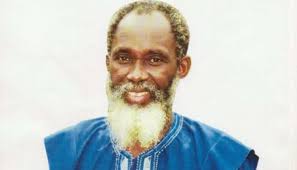Apostle Kadmiel E.H. Agbalenyoh, Presiding Missionary of the Seventh Day Theocratic World Congregation (SDTWC), has urged Sabbath-keeping Ghanaians to exercise their right to vote on December 7, 2024, emphasizing that it is not a sin but a civic responsibility.
Speaking to members of his congregation, Apostle Agbalenyoh cited biblical precedents and theological reasoning to dispel concerns that voting on a Saturday, the Sabbath day, contradicts religious doctrine. He explained that participating in elections aligns with the civic and spiritual principles of responsibility.
Biblical Precedent for Voting on Sabbath
The Apostle drew attention to Acts 1:23-26, where the apostles of Jesus Christ cast lots on the Sabbath to replace Judas Iscariot. He recounted:
“The apostles appointed two men, Joseph called Barsabas (surnamed Justus) and Matthias. They prayed and said, ‘Lord, who knows the hearts of all men, show us which of these you have chosen.’ They cast lots, and the lot fell upon Matthias, who was numbered among the eleven apostles.”
He elaborated that just as the apostles voted to select a replacement for Judas, Ghanaians voting on the Sabbath to elect their leaders fulfills a similar duty. “Christ himself said, ‘Give unto God what belongs to God and unto Caesar what belongs to Caesar’ (Luke 20:25),” he stressed.
Ghana’s Secular Context
Apostle Agbalenyoh reminded the congregation that Ghana is a secular state, where citizens are required to participate in the democratic process to ensure governance and development. He emphasized that religious obligations, while sacred, should not impede civic duties.
“In Matthew 17:24-27, Christ paid taxes to avoid offending secular authorities. Similarly, Sabbath keepers must honor their civic obligations by voting, even on the Sabbath,” the Apostle explained.
Adjusting Voting Times for Sabbath Observers
To reconcile Sabbath observance with civic participation, Apostle Agbalenyoh proposed that voting could be done after 3:30 PM. He cited the crucifixion timeline of Jesus Christ to support this suggestion:
“Jesus atoned for humanity’s sins on the cross for six hours, from 9:00 AM to 3:00 PM. Afterward, his body was taken down and prepared for burial. This timeline implies that Sabbath keepers can fulfill their civic duty after completing their primary Sabbath worship responsibilities.”
He clarified that this approach ensures that Sabbath keepers respect both their religious obligations and their civic duties, thus maintaining harmony between faith and citizenship.
A Call to Civic Engagement
Apostle Agbalenyoh concluded with an appeal to all Sabbath worshipers:
“As citizens of Ghana, it is our responsibility to vote and help select the leaders who will govern the nation. The Seventh Day Theocratic World Congregation encourages its members to step out after 3:30 PM on December 7 to cast their votes and contribute to Ghana’s progress.”
This thoughtful guidance seeks to alleviate concerns among Sabbath observers while ensuring their active participation in the democratic process.
Curled from: Voice of Theocracy (VOT) newspaper, Vol. 9, under the headline “Sabbatharians on December 7, 2024.”
By S.O. Ankamah | ghananewsonline.com.gh

